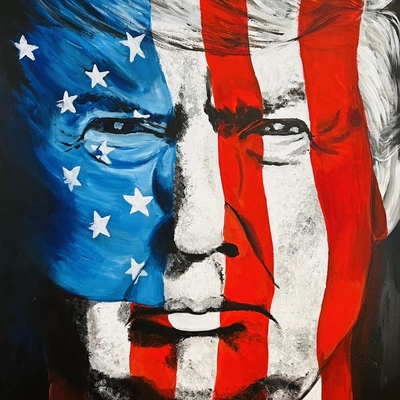Stay informed on the latest Truth Social posts from Donald Trump (@realDonaldTrump) without the doomscrolling. Consider it a public service for your mental health. (Why?)
- The United States has a significant and persistent trade deficit with Tunisia.
- This trade deficit is a major threat to the U.S. economy and national security.
- The U.S. invites Tunisia to discuss their trading relationship.
- Starting August 1, 2025, the U.S. will charge a 25% tariff on all Tunisian products entering the United States.
- The 25% tariff is considered less than what is needed to eliminate the trade deficit disparity.
- No tariff will be charged if Tunisia allows products to be built or manufactured within the United States.
- If Tunisia raises its tariffs, the U.S. will add that amount to its existing 25% tariff.
- The tariffs are intended to correct years of unsustainable trade deficits caused by Tunisia's tariffs and non-tariff barriers.
The direct economic impact of tariffs on a relatively small economy like Tunisia on the S&P 500 is likely minimal. However, the action signals an assertive and potentially protectionist trade policy stance by the United States for the future (July/August 2025), which could create some market uncertainty if applied to larger trade partners. The specific target and future date mitigate immediate broad market impact, but the rhetoric could contribute to a narrative of increasing trade tensions.
The post describes a bilateral trade dispute resolved through tariffs, not military action. While the language includes a 'national security' concern, it is within the context of economic stability, not direct military threat or conflict. The risk of international conflict escalation is very low, as it pertains to economic policy.
- Commodities: No direct significant impact on major commodities like Gold (XAU) or Oil (WTI). Potential for very minor shifts if this signals broader protectionist trends, but unlikely to be material from this specific bilateral action. Short-Term Watchlist: N/A. Medium-Term Focus: N/A.
- Currencies (Forex): Minimal direct impact on the US Dollar Index (DXY). The action reflects an assertive U.S. trade stance, but Tunisia's economic size means limited influence on global FX flows or major currency pairs. Short-Term Watchlist: N/A. Medium-Term Focus: N/A.
- Global Equities: Direct impact on S&P 500, Nasdaq, STOXX 600, Nikkei 225, and Hang Seng is negligible due to the small scale of trade with Tunisia. Any impact would be through broader sentiment if this specific action is perceived as a precursor to more widespread trade disputes, which is not directly indicated. Short-Term Watchlist: N/A. Medium-Term Focus: N/A.
- Fixed Income (Bonds): No direct significant impact on US 10Y and 2Y yields or a flight to safety. The measure is too specific and targeted to influence global bond markets meaningfully. Short-Term Watchlist: N/A. Medium-Term Focus: N/A.
- Volatility / Derivatives: No direct impact on the VIX. The specified action is unlikely to trigger significant market volatility or amplify options positioning. Short-Term Watchlist: N/A. Medium-Term Focus: N/A.
- Crypto / Digital Assets: No direct correlation or impact on Bitcoin (BTC) or other digital assets. The post's content is unrelated to crypto markets. Short-Term Watchlist: N/A. Medium-Term Focus: N/A.
- Cross-Asset Correlations and Systemic Risk: No signs of systemic risk or breakdown in normal correlations are indicated. This is a bilateral economic measure with limited systemic implications. Short-Term Watchlist: N/A. Medium-Term Focus: N/A.
- Retail Sentiment / Market Psychology: Unlikely to trigger retail speculation in specific assets. The policy action is too niche and distant (2025) to generate broad retail market interest or coordinated pushes. Short-Term Watchlist: N/A. Medium-Term Focus: N/A.

